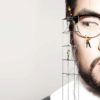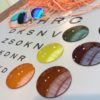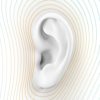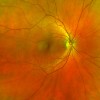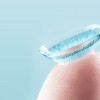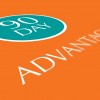When you work in the optical industry, you are very well aware of the importance of regular sight tests and looking after the health of your eyes. In the general population however, there seems to be a lot of myths around the subject of having your eyes tested and being prescribed spectacles. This article approaches the five most common ones and gives reasons why we feel that they are exactly that – myths!
#1. “I can see perfectly well, why do I need to have my eyes tested?”
If you are lucky enough to have good vision throughout your life and no symptoms then you may think an eye test isn’t necessary. Sheinman’s Senior Optometrist Marc Williams says: “Most eye problems progress slowly, starting in one eye before the other and so a lot of people don’t appreciate the problem until it’s gone too far. As well as assessing your levels of vision during a sight test, your optometrist will also be checking the health of your eyes in general. We are able to detect many conditions from looking at your eyes including Diabetes, Glaucoma and High Blood Pressure, which can be symptom free in the early stages. If a pathology is developing that will cause future eye problems then early diagnosis is key. A plan of action can then be put in place. With the technology available here this may simply require monitoring for change or may involve referral to a Hospital Service for treatment.”
Adults with no family history of eye disease are recommended to have their eyes tested every two years. At Sheinman, we have invested in the very latest technologies to ensure we see every detail possible, see here for more information on our services.
#2. “I can’t have my child’s eyes tested until they can read the letters on the chart“
Children of all ages can have a free eye test on the NHS, even if they are too young to talk or not able to read the letters. We use other ways of testing their eyes to check that they are healthy and seeing properly. The eye tests are fun and easy to do and it is very important for all children to have regular eye tests, even if you think everything is ok. More details on our children’s eye tests can be found here.
#3. “I’ll be told I need glasses even if I don’t”
No reputable optician will advise you need spectacles if you really don’t, we may even find a minor prescription but advise you that no spectacles are needed at the current time. In fact, 12% of the people whose eyes we tested in 2016 needed no prescription at all and 25% of current spectacle wearers we tested had no significant change to their spectacle prescription.
#4. “What if give the wrong answers?”
You cannot get a sight test wrong! Your optician will use objective tests (these are not dependant on your answers) and a technique called “bracketing” in such a way that even if you are uncertain about a couple of answers the end result will not be affected.
#5. “Once I start wearing glasses I’ll become dependant on them”
If you have been prescribed spectacles for the first time you may find you wear them more than you initially thought you would. This is not because wearing the spectacles has made your eyes “worse”, rather that your vision feels sharper and more comfortable than without them. As we age, the crystalline lens inside the eye loses it’s natural ability to refocus from far to near and therefore stronger reading spectacles are needed. Wearing spectacles can not make this process happen any faster than it would have done if you hadn’t worn them!

